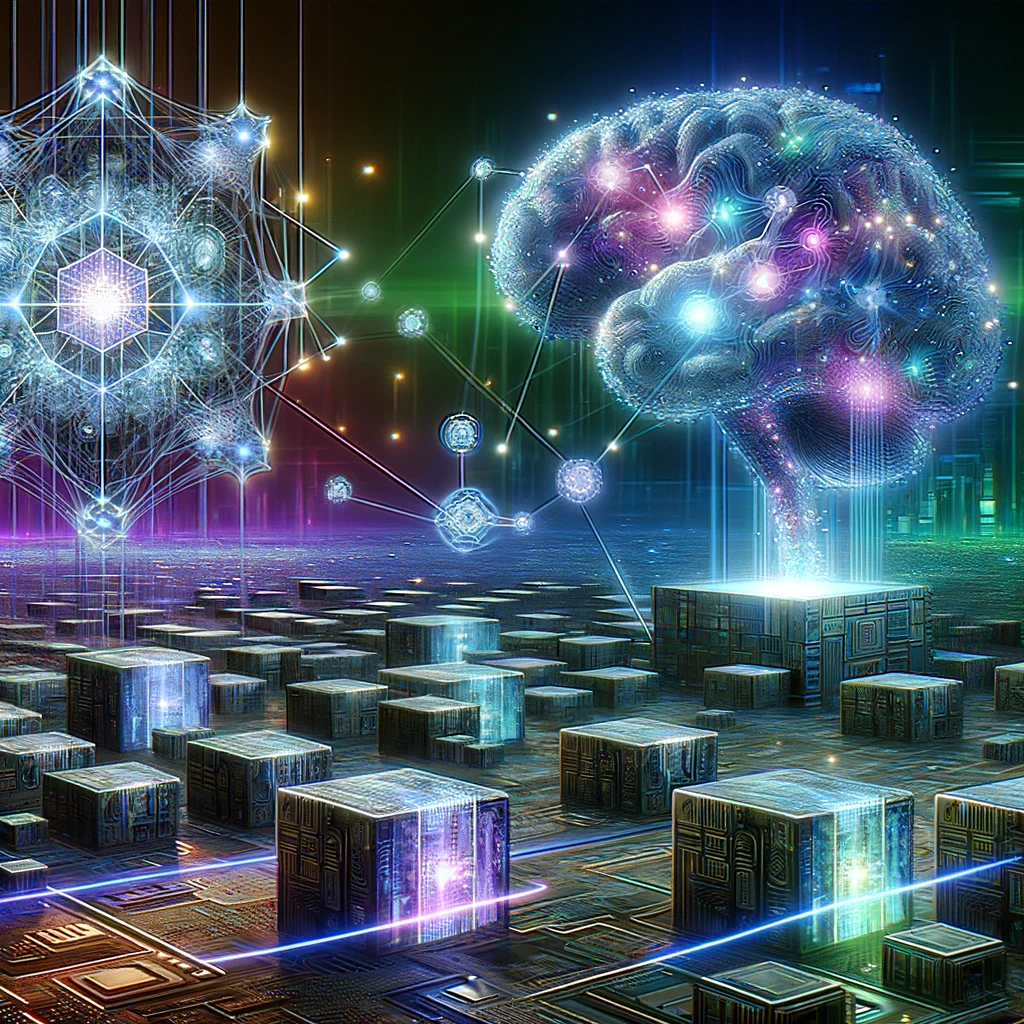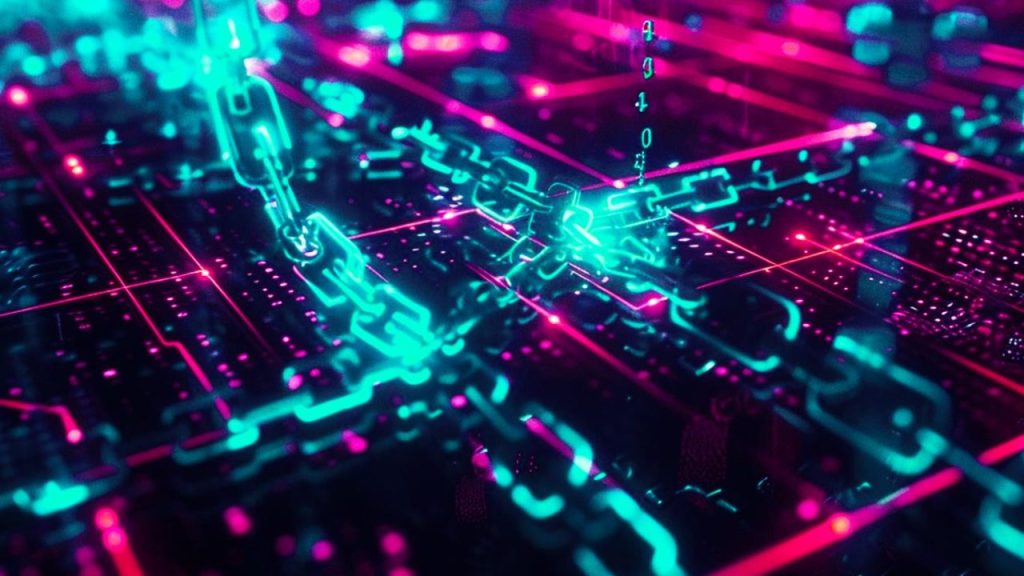Blockchain and artificial intelligence have a synergy that is becoming increasingly prominent. With AI’s transformative potential in various industries, ensuring the integrity and fairness of the data it relies on is paramount. Blockchain emerges as a robust solution, offering transparency, immutability, and ethical governance.
Blockchain: the guardian of data integrity
Blockchain technology serves as an unyielding guardian of data integrity. It provides a transparent and immutable ledger for data. Comparable to a meticulously kept diary, it records every transaction without the possibility of alteration. This ensures the trustworthiness of data by allowing stakeholders to trace its origins. Additionally, anyone can assess data handling, creating an ecosystem of verifiable information.
Imagine a library catalog system. Books are tracked through a decentralized ledger shared among multiple libraries. Each book transaction, such as check-outs or returns, is recorded in a block. Once added, it cannot be altered. This is similar to how blockchain works. This system ensures data consistency and reliability. The decentralized technology also preserves the integrity of data. This analogy illustrates blockchain’s applicability. It demonstrates its role in securing various data types. It spans across industries like supply chain management, finance, and healthcare.
Catalyst for AI growth
Beyond ensuring data integrity, blockchain acts as a catalyst for the growth and development of AI. It functions as an expansive library of diverse knowledge and experiences. Additionally, it enriches AI’s learning capabilities by providing access to a multitude of sources. This diversity empowers AI systems to become smarter, more insightful, and adaptable to various contexts and challenges.
Fair and unbiased governance
Blockchain also serves as a fair and unbiased referee in the world of AI. It’s establishing an environment of trust and rule-abiding behavior. Moreover, the decentralized technology is enforcing principles of fair play and protecting privacy, security, and individual rights. This results in ethical AI practices. This ethical governance framework is crucial for fostering public trust in AI technologies. Also it mitigates concerns about bias or discrimination.
The blend of blockchain and AI holds tremendous promise but also presents some challenges. Effective collaboration and resource allocation are essential. They ensure the seamless integration of both technologies without excessive energy consumption. Addressing these challenges will unlock groundbreaking innovation. Additionally, it will propel the advancement of AI-driven solutions.
Unlocking the potential
In a data-driven world, integrity and fairness of information are paramount. Blockchain emerges as the guardian of trust. By leveraging the decentralized technology, AI can thrive on a foundation of reliable and ethical data. Embracing the synergy between decentralization and AI has the potential to shape a brighter, more equitable future for all.
As technology continues to advance, blockchain and AI hold immense potential to drive innovation. The decentralized technology ensures data integrity and fosters ethical governance. This in return paves the way for AI to fulfill its transformative promise. As stakeholders navigate this dynamic partnership, they must remain vigilant in upholding principles of transparency. In addition, fairness and accountability are vital to realize the full benefits of these groundbreaking technologies.





